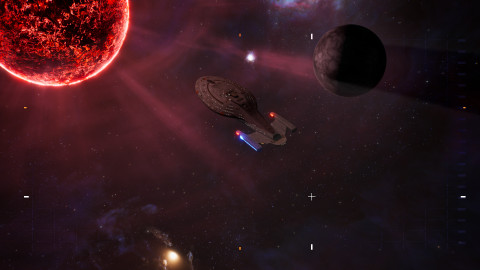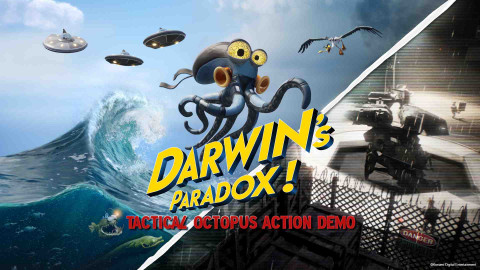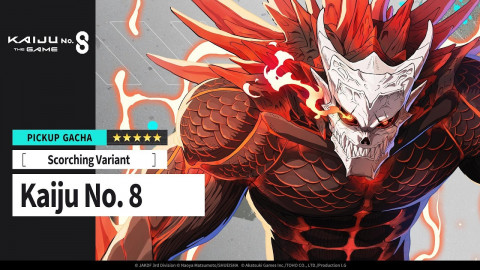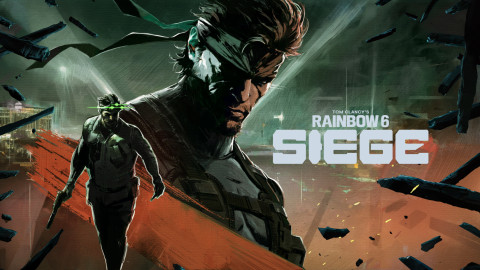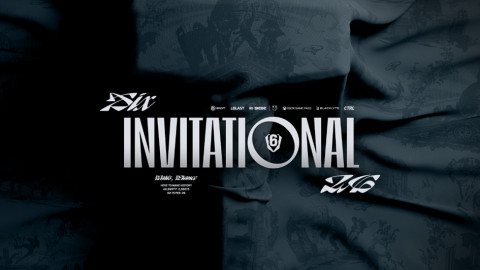
Although marketed as a hero-based FPS, Overwatch has strayed further and further from its origins since early release, each update seemingly stripping the game of its FPS bedrock and leaving players with little more than tumultuous, unsatisfying, ability-driven gameplay that may appease casual players in the short-term but commands little attention in the long-term.
The game’s early additions seemed promising -- Ana’s sniped heals added a much-needed layer of mechanical skill to the support category, while Sombra provided another variety of flanker. From there, however, things took a nosedive.
Orisa, a main tank, introduced more projectile spam to Overwatch and the next damage hero, Doomfist, relied so heavily on gimmicky one-shot mechanics that his primary fire was reduced to an after-thought. The buff to Junkrat that followed empowered spam once again, elevating another low skill floor hero to must-pick status at even the pro level.
Moira and Brigitte, Overwatch’s latest supports, have proven to be the game’s most offensive additions. Both heroes feature low-skill, high-reward damage output poorly justified by their healer status. Brigitte has both the benefits of ranged and the simple-minded mechanics of melee, as well as a powerful stun combo that any kindergartener could pull off. Her damage output is so substantial that Overwatch League analysts evaluate her play in terms of damage output -- and that output requires next to no mechanical skill.
"Widowmaker cannot remain Overwatch’s sole viable, mechanically-demanding hero."
The pitfalls of Overwatch’s newest additions are on top of the game’s original heroes, of which only a handful are aim-intensive. Tank heroes like Winston and D.Va and support heroes like Lucio and Mercy require little to no aim, while damage heroes like Hanzo, Mei, and Junkrat thrive on spam and/or low-skill gimmicks (e.g. Scatter Arrow, Storm Arrow, Concussion Mine, Mei’s freeze).
These heroes -- those that require little mechanical skill -- are not inherently bad and are, in fact, vital points of entry for players without FPS backgrounds. Many gamers were undoubtedly sold by Overwatch’s promise of noob-friendly shooter options, but while a handful of non-FPS heroes should exist for the sake of inexperienced players, those heroes should not define the gameplay.
When they do, Overwatch is reduced to little more than a series of gimmicky, frustrating, and unsubstantial cooldowns and ultimates. “Nice Q press” and “no brain, no aim, must be a Winston main” might be memes, but they hold truths -- press-Q-to-win and M1-for-free-damage mechanics are not interesting or impressive, yet Overwatch has become oversaturated with and defined by them.
Cooldown centric play
Aim has become inconsequential, a button to press to fill the time while staring down chokes or waiting for abilities to come off cooldown. On most heroes, so long as players are looking in an opponent’s general direction, bullets will land and ult charge will flow, creating an unsatisfying cycle of deaths and respawns contingent most often on factors aside from one’s skill. The game’s traditional FPS heroes have been MIA for seasons with no end in sight.

Two justifications are most often given for this trend: firstly, that a less difficult game appeals to more casual players, which is ostensibly Blizzard’s target demographic and secondly, that less aim-intensive heroes compensate for their lack of aim component by being challenging in other ways.
Regarding the first argument, Overwatch will always appeal to a “casual” demographic because it is not going to stop offering a selection of less mechanically demanding heroes. As aforementioned, a handful of those heroes are necessary for the game’s health and they, along with seasonal events or items and low-pressure arcade modes, will always bring players back into Overwatch’s gravitational pull.
However, a player who wants to invest minimal time or energy into Overwatch is the same player who will quit playing for weeks on end when another game flashes something shiny, i.e. they are not the core player base. The core player base sustains Overwatch during its lulls and dictates the rhetoric surrounding the game. They are worth catering to -- and in this case, catering means offering challenging, rewarding gameplay that leaves gamers with a reason to come back.
As for the second argument, the idea that Overwatch’s least aim intensive heroes compensate for their lack of mechanical skill with challenges in cooldown usage and decision-making (e.g. a Winston’s skill is determined by their jumps and a Junkrat’s by their Rip-Tires or Concussion Mines) is a delusion. Every hero, regardless of their aim component, benefits from smart decision-making and cooldown usage.

Zarya, for example, demands a great deal of game awareness, cooldown management, and quick thinking to use her Particle Barriers and Graviton Surge to their full potential, and her primary fire requires tracking (albeit relatively simple tracking at high energy). Soldier:76 is a traditional FPS hero whose limited vertical mobility and average health pool require him to carefully position himself, while his heal station must be smartly managed to best assist his supports. When, where, and how an Ana uses her Biotic Grenade and Sleep Dart can make or break team fights, and her heals require two types of aim.
Thusly, aim must be the foundation of each hero upon which unique abilities add depth and distinction. Without FPS mechanics as Overwatch's foundation, gameplay becomes completely ability driven, and ultimately, the abilities in Overwatch are relatively easy to use effectively and most of them, especially those with CC (crowd-control) or one-shot mechanics, breed more frustration than they do fun.
Furthermore, it is simply not enough for aim-intensive heroes and less aim-intensive heroes to both be viable. If so, heroes from the latter category will always be chosen over heroes from the former category because they are less risk, yet similar (if not more) reward due to their comparatively limited room for error. Not all heroes are created equal, and it is a shame to see Overwatch consistently incentivize low-skill hero picks.

The time, effort, and dedication required to master a mechanically demanding hero is not currently recognized or rewarded in Overwatch; it absolutely needs to be. Aim is a demonstrable, consistent metric by which players can judge their personal improvement, and such a metric is vital amidst Overwatch’s emphasis on teamwork. Players need something to strive for and turn to for satisfaction beyond teamplay and ranked success, especially given than in Overwatch, ranked play is notoriously flawed and true teamplay non-existent outside of the upper echelon of players.
"The nuance of team play that drives pro Overwatch is lost on spectators and makes the esport unapproachable and unexciting to the unindoctrinated."
It is infinitely more satisfying to see oneself improve at challenging heroes like McCree or Soldier or Tracer than it ever will be to see oneself improve on heroes like Brigitte, and players will continually chase that challenge and sense of accomplishment if their efforts are rewarded. But as it stands, the best Soldier in the world, let alone an average player, dies to every silver ranked Hanzo who has Storm Arrow active; is sent to spawn by a Junkrat sneezing in their general direction; and, could be clubbed to death by any Brigitte from solo queue.
Esports concern
From an esports perspective, this trend should be the game’s death knell. Esports thrive on the awe and wonder an average player feels when they witness the best players in the world perform demonstrably better than they could ever dream, but Overwatch esports impresses most often in nuance.
No matter how often casters declare this Winston better than that Winston or this Brigitte better than that Brigitte, the actual gameplay is so homogenous to the vast majority of viewers that they may as well be watching a team play itself. The nuance of team play that drives pro Overwatch is lost on spectators and makes the esport unapproachable and unexciting to the unindoctrinated.
Despite the heat her dominance has drawn over the last six months, Widowmaker has been a blessing in disguise for the Overwatch League. The sniper is difficult enough that good play is (a) easily discernible, even to someone who has never seen Overwatch before, and (b) unattainable for average players, giving them a reason to watch pro players rather than play themselves.

Grapple shots from across a map and headshots in quick succession lend themselves to highlight reels, making stars out of players like Fleta, Carpe, Taimou, and Babybay in an instant. There is a reason Widowmaker kills evoke gasps from live audiences whereas every Brigitte kill is followed by a chorus of LULs in Twitch chat.
But Widowmaker cannot remain Overwatch’s sole viable, mechanically-demanding hero. The likes of McCree and Soldier must be empowered; FPS mechanics must be incorporated into other characters’ kits; and, more aim-intensive heroes must be released for the sake of the game’s core player base and fledgling esport league.
Overall, Overwatch has forsaken its unifying, core element since launch and deteriorated into a series of gimmicky, oftentimes one-shot, abilities that neither challenge nor reward players. The game never was a truly demanding FPS title and it likely never will be, but its current direction has made for more frustration than fun, more tedium than excitement. It is a mistake for Blizzard to shy away from complex, challenging gameplay that inspires players of all skill levels to return time and time again.
Sort by:
Comments :4
-
0

level 1 S_2G
A good mix is needed. In Overwatch, team synergy, map sense, situational awareness and good communication will always trump solo mechanical skill. Pure FPS games are a dime a dozen and die out from a design that allows the same top players to always carry entire games which is more frustrating than the "press Q" or "W M1" criers. If the game design is meant only to reward mechanical skill, you alienate the large majority of players who invest in the hero fantasy that Overwatch is based on. There is pride in developing mechanical skill but the real reward in Overwatch is knowing that if you outsmart your opponent, support your team, strategize around your strengths and watch your weaknesses, you can remain competitive. If you are looking for a solo carry game, this is not it and there are plenty others that you should entertain yourself with. Maybe a separate competitive ranked mode for dps or pure hitscan or something as a rotating event might please those that need to feel potent.
-
0

level 1 Slayer
I wholeheartedly agree with this article. OW has added so much unnecessarily to the game right now, it feels alien. But more importantly, I would like to point out the downright ability changes constantly features within the game. Balancing does not need total ability changes all the time, sometimes a slight tweak might just be enough. Somehow the developers seem hell bent on changing abilities all the time, adding stuns; huge shields etc.
-
0

level 1 Sh0tybumbati
You've completely ignored the newest hero Wreckingball, THE MOST MECHANICALLY DEMANDING HERO TO DATE. THE FIRST HIT-SCAN TANK, AND HIGHEST SKILL CEILING HERO TO DATE
-
0

level 1 Optim
yep
but ptr, Hanzo and his meta will be nerf and hitscan will be buff.
So, we can hope that the game will become good again.
at least like season 9


